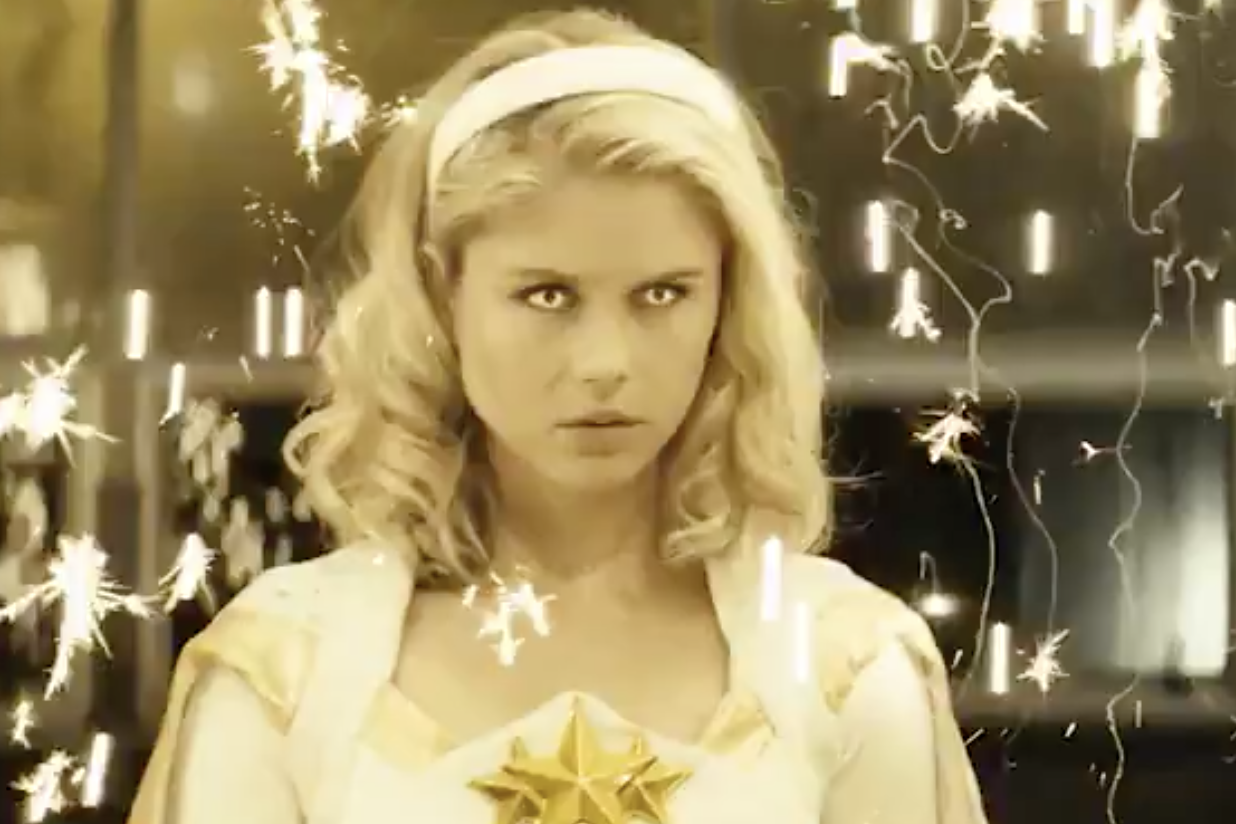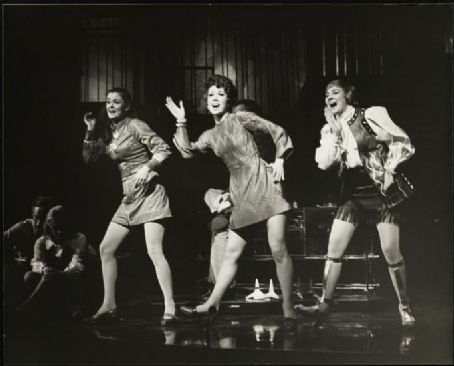Saturday, August 31, 2019
VH
Let's say goodbye to Valerie Harper. She'd been ill for years, so we should be happy we had her as long as we did. I've written about her life at some length a while ago, so I suggest you read that.
In short, let's just say that she was a delightful actress and her work as Rhoda Morgenstern on The Mary Tyler Moore Show was indelible. She won three Emmys--deservedly--for her supporting work and then one more as lead actress for the same role in her own show Rhoda.
There had been wisecracking next door sitcom neighbors before, but none as delightful as Rhoda. The Mary Tyler Moore Show was always a good program, but it took some time to find its footing, as well as get the ratings. But one thing it got right immediately was Valerie Harper.
She was the least known of the cast, with practically no TV experience. But the audience responded to her and, from the start, she was a favorite. While it was, in part, the writing, I think Harper was a necessary ingredient. She put over a role where others might have failed. The part is tricky, and Rhoda could have come off as obnoxious or pathetic if not done with the right tone. I think Harper had something inside her that came across, so we loved the character as we were laughing with her.
I was reading an interview with Ed Asner yesterday. He said the cast of MTM truly loved each other. It started me thinking of those in the show who are now gone--Mary, of course, as well as Ted Knight, and, this year, Georgia Engel, who played Ted's wife. Now we can add Valerie Harper to the list. I hope they all knew, before they left us, how much we all loved them.
Friday, August 30, 2019
Rolling
Merrily We Roll Along, which opened (and closed) in 1981, was the sixth Broadway musical from director-composer team Harold Prince and Stephen Sondheim. It was such a flop that the two decided to go their separate ways. The trouble with the musical was the same as with the 1934 Kaufman and Hart play it was based on--the gimmick of moving backwards in time wasn't clever enough to salvage a minor story about artists selling out.
Sondheim and book-writer George Furth redid the show a number of times till they came up with a version that satisfied them. And now there's going to be a movie. Great. Any time a Sondheim musical is made into a movie that's a good thing, even if the results rarely compare to the stage version.
But how will they deal with the reverse time concept? In a pretty bizarre way. They're going to film it over 20 years. When I read that, I checked the date of the article to be sure it wasn't April 1. Sure, the actors will age properly over time for their roles, but haven't they heard of makeup?
The three leads will be played by Beanie Feldstein, Ben Platt and Blake Jenner. And I suppose other cast members will age along with them. Okay, but what if someone dies? Or is in a disfiguring accident? Or has some sort of conversion and drops out of movies? Heck, what if the world blows up?
The director is Richard Linklater, of course. I say "of course" because he did Boyhood, a film shot over 12 years that literally shows a boy growing up. It did pretty well and was nominated for a bunch of Oscars. But Linklater (who, by the way, has no experience with flat-out musicals) isn't a kid any more. He's almost 60. Does he really want to sign up for a 20-year shoot?
At least the talent behind the camera can be replaced. And let's be honest--if one of the actors does drop dead, I'm sure in ten years we'll have the technology to animate them on screen well enough that no one will know the difference.
Thursday, August 29, 2019
A Friendly Place
I recently read I'll Be There For You* by Kelsey Miller, the story of the sitcom Friends. The show was a hit from the start, and in all its ten seasons, was never out of the top ten. In fact, after its first season, it was never out of the top five. Perhaps not surprisingly, after leaving the air 15 years ago, it's remained very popular in reruns. Businesses pay hundreds of millions for the rights.
What did surprise me was the original title. It's wasn't always called Friends. Earlier titles include Six Of One and Friends Like Us. It might have been called the latter, except the Ellen sitcom, which started a few months earlier, was first known as These Friends Of Mine and that sounded too similar.
But here's the surprise. The original title was Insomnia Café. The creators of the show, Marta Kauffman and David Crane, were driving down Beverly Boulevard when they saw a place called the Insomnia Café and started thinking it would be fun to set a sitcom in a coffeehouse, or at least have it be a main set**.
What's cool about this is I live not too far from the Insomnia Café. When I first moved to Los Angeles, I would hang out there sometimes. If someone wanted to meet me, I'd often suggest the Insomnia. And you know what people did there? Same as in any coffeehouse in LA. They'd work on their sitcom scripts.
By the way, the book is filled with all sorts of tidbits (the original opening credits for the show, done at the last second at the network's request, was set to "Shiny Happy People"). If you like the show, you'll probably like the book.
*A decent book when it discusses the history of the show, though its constant excursions into political issues wears thin by the end.
**Friends fans know the pilot starts with the gang hanging out in "Central Perk." There was actually resistance from the network over the set. The suits worried Middle America wouldn't know what a coffeehouse was--why not have these friends meet at a diner, you know, like Seinfeld?
Wednesday, August 28, 2019
What's So Funny?
Having read everything on the Marx Brothers I could get my hands on, I was excited to see Lee Siegel's Groucho Marx: The Comedy Of Existence in my local library. It's part of an ongoing series on Jewish lives that's gone from Einstein to Kafka, from Leonard Bernstein to Leon Trotsky.
Unfortunately, the book--at 150 pages more an extended essay--falls short. Lee Siegel is a cultural critic whose work I've sometimes enjoyed, but his excursion into the meaning of Groucho doesn't add up to much.
He doesn't seem to have done any original research, unless you count watching Marx Brothers movies. He also makes a number of mistakes, such as listing the wrong year for certain films. But then, this isn't a biography, it's a lengthy think piece. Unfortunately, on that level it fails.
One of his central ideas is that just as Julius H. Marx became known as Groucho, so does the Groucho character reflect much of the actual Julius. There may be something to this, but it's not too deep an observation, and is not developed well.
Instead, Siegel makes many highbrow references, even if they have little to tell us about Groucho or his comedy. He also quotes from some of the Brothers' famous routines and then goes on intellectual flights of fancy as to their meaning. On top of which, it often seems Siegel doesn't find the Marx Brothers particularly funny. That seems a serious problem if you're trying to understand Groucho.
Anyway, a disappointment.
Tuesday, August 27, 2019
Phoebe's Baby
So I watched Fleabag. All of it. At two seasons, six episodes per, it wasn't that hard--about five hours of screen time.
Based on her play of the same name, Fleabag is created, written by and stars Phoebe Waller-Bridge, who's nominated for three Emmys for the show--acting, writing and best comedy. (She also created Killing Eve, nominated for best drama. It's possible she'll join David E. Kelley in having the best comedy and drama the same season.)
The show tells its story through the eyes of its main character. In fact, she regularly talks to the camera, commenting on the action and telling us her feelings. Many of the characters are only known by their generic names, such as Bank Manager, Arsehole Guy, Bus Rodent, Godmother, Hot Misogynist and so on. It's a sign of how little the protagonist thinks of herself that she's known as Fleabag.
Fleabag has plenty of problems. Her sister Claire (Sian Clifford) is married to Martin (Brett Gelman), an obnoxious guy whom Fleabag despises. Their mother recently died and their father (Bill Paterson) is taking up with a new woman (Olivia Colman) that Fleabag can't stand. Fleabag herself has a boyfriend, Harry (Hugh Skinner), who leaves and then returns on a regular basis. Meanwhile, she sleeps with just about every guy she meets.
Worst of all, her friend, Boo (Jenny Rainsford), with whom Fleabag ran a cafe, recently died in a traffic accident that was partly on purpose. The first season is about Fleabag coming to terms with that loss.
Waller-Bridge felt she'd said all she had to say, so wasn't sure a second season could work. But then she came up with an idea that made Fleabag worth exploring a bit more. This time around she falls in love with a priest (Andrew Scott). While there are some farcical complications, the second season, like the first, though still a comedy, ends with something close to tragedy. Fleabag has to deal with where her choices have taken her, when all those smart remarks to the camera are no longer enough.
Phoebe Waller-Bridges does a fine job in the title role. The supporting case, in general, is solid. But I think acting honors should go to Sian Clifford as Claire, Fleabag's temperamentally opposite, uptight sister
Fleabag has received numerous critical accolades. Is it better than the competition at the Emmys? I don't know, but Phoebe Waller-Bridge has created something special.
Monday, August 26, 2019
MT
Let's sing happy birthday (with the proper rhythm) to Velvet Underground drummer Moe Tucker, who turns 75 today. She was a killer on the toms.
Sunday, August 25, 2019
Stars On 44
The Obamas just released a playlist of 44 songs they're listening to this summer. I'm not sure what the point is, but I must say it's pretty eclectic and pretty good. I admit I prefer the older songs. Among my favorites:
--"I'll Be Around" by The Spinners
--"Reelin' In The Years" by Steely Dan
--"Don't You Worry 'Bout A Thing" by Stevie Wonder
--"I've Got You Under My Skin" by Frank Sinatra
--"Drift Away" by Dobie Gray
--"Brown Eyed Girl" by Van Morrison
--"Happy" by The Rolling Stones
--"Get Together" by The Youngbloods
I wonder how much this will increase the sampling rate of these tunes? If it makes a big difference, next thing you know labels and artists will be calling up the Obamas and suggesting new titles.
Saturday, August 24, 2019
New Hope Or Only Hope?
I was just watching the original Star Wars, or as it's called today, Star Wars: Episode IV -- A New Hope. It's pretty well put together. You can see why it was such a big hit, big enough to change Hollywood. It's hard to watch it as if it were something new, though. It's like Hamlet--there are so many lines and moments that are iconic it's hard to get past that.
But when it was released in 1977, no one could know that, which is why it was called Star Wars and not Episode IV. George Lucas had a tough enough time getting a studio to buy his project. He also had a lot of story that he didn't use, cutting his script down to what he considered (correctly, I would say) the most entertaining stuff.
But Lucas, years later, would claim he knew what was coming, and that's simply wrong. The big surprise is that Darth Vader is Luke's father and Leia is his sister. This doesn't make sense based on the first film. It just worked out that way once Lucas realized he was doing a sequel.
Let's look in particular at Leia. Even ignoring all the creepy stuff--she and Luke kiss and generate a bit of heat, something Lucas wouldn't have considered if he thought they were siblings. But even before they meet, you've got the hero's quest at the center of the film.
Luke starts out as farm boy working on a rock of a planet, wishing for something bigger. He sees the projected image of a magical princess, and that sets his mind ablaze. This is the hero's quest. He's got to find her, and be with her.
Don't get me wrong, there are a number of reasons Luke must go on his quest. His mentor Obi-Wan Kenobi* needs to train someone as a replacement. His aunt and uncle, who look out for him, are killed (Star Wars, remembered as a kid's film, is surprisingly harsh in places) so he needs to move on. And his friends are already fighting with the rebels, so he wants to join anyway.
But, beneath it all, is that lust--not just for excitement and power, but for a beautiful, mysterious woman who seems beyond his grasp. He's not going to cross the galaxy just to say "Hi, sis."
*I'm not the first to point this out: based on retrofitting from the other films, Obi-Wan is hiding out on Tatooine to watch over Luke. He's one of the last Jedi, and the Empire would hunt him down if they knew he was still around. So he changes his name from Obi-Wan Kenobi to Ben Kenobi. Yeah, that'll fool them--just being one name away in the phonebook is the perfect disguise.
Friday, August 23, 2019
Doubtful
Let me recommend The Skeptic's Guide To The Universe, a book by Dr. Steven Novella, a neurologist from Yale, as well as several contributors. It's based on Novella's podcast.
Much of the book is taken up with core concepts of basic skepticism--reasons why people often fool themselves. There are the facts of psychology (which the doctor should know), logical fallacies and biases, pseudoscience and historical tales of frauds and errors.
This is the best part of the book and should be required reading in schools. Humans simply don't think logically and, while that will never stop, they should at least be aware of why they make these mistakes. There's confirmation bias, cherry picking, straw man arguments, appeal to authority and so many other ways to go wrong. Being aware of these problems will not prevent you from going wrong, but at least you might be a little more humble about your beliefs.
The rest of the book includes specific adventures in skepticism that the authors have been through, some worst-case scenarios to flow out of ignorance, problems with the media and how to try to change yourself as well as the world.
The book is 473 pages. Human folly is limitless, but The Skeptic's Guide To The Universe is a good start in the fight.
Thursday, August 22, 2019
Fun With Fosse
I just read Big Deal*, Kevin Winkler's volume about Bob Fosse. You might think after Sam Wasson's 2013 biography, we don't need another book on Fosse. But Winkler concentrates more on the work, and walks us through all those dances. Winkler, an archivist and library administrator, was once a dancer and was even coached by Fosse himself, so he knows his stuff. I personally don't know a pas de deux from a port de bras, but Winkler's book brought Fosse's choreography back to life.
Fosse's story is well known to fans. If you don't know it, watch his autobiographical All That Jazz to get an idea. Born in 1927, as a teen he went to school by day and danced in clubs at night. He worked his way up, and even signed a contract with MGM in the early 50s. He hoped to be the next Fred Astaire, but musicals were on the way out. And Fosse, though a great dancer, didn't seem to have that special star quality. (He continued to appear on stage, especially in Pal Joey, which was perfect for him and which he did a number of times, but by the mid-60s it was clear that was not his path.)
He married three women, all dancers, each helping his career. His last wife (they separated but never divorced) was Gwen Verdon. They met in their early days on Broadway--he choreographed her star turn as Lola in Damn Yankees. She became his muse and he helped create her best roles, especially in Sweet Charity and Chicago.
Fosse had a number of mentors along the way. On Broadway, that includes no-nonsense director George Abbott and choreographer Jerome Robbins. Fosse had done some good work in movies, such as his short, featured dance in Kiss Me Kate (1953), so these two decided to take a chance on him in Pajama Game (1954)--Robbins would spell him if he didn't work out. And while Robbins was needed to stage the big ensemble numbers (Fosse would eventually figure it out, but he wasn't ready yet), Fosse really came through with the specialty number "Steam Heat." It's probably the first classic Fosse dance (though Abbott almost cut it because it had nothing to do with the plot).
He met Verdon the next year on Damn Yankees, which started both a romance and an unbeatable Broadway team. (The romance had him cheating on his wife Joan McCracken, but then, he always cheated.) They did two other shows in the 1950s, both hits--New Girl In Town and Redhead. The latter was the first that Fosse directed--he realized he needed more control to see his vision through. Neither of these shows have that much to them--they haven't ever been revived on Broadway--but with Verdon's star power and Fosse's razzle dazzle, they both ran for a year.
Then, while working on a show called The Conquering Hero, he was fired. (This is the show of which book writer Larry Gelbart said "If Hitler's alive, I hope he's out of town with a musical.") The show is all but forgotten, but this is where Winkler's at his best, recreating the musical numbers that Fosse fought for and got fired over. Big Deal teaches us a lot about things his more obscure pieces, even works that closed out of town such as Frank Loesser's last musical Pleasures And Palaces.
After getting fired, Fosse had to prove himself again by staging most of the musical numbers in the blockbuster How To Succeed In Business Without Really Trying (1961). He now knew how to break up the ensemble and put them to good use in numbers like "Coffee Break," "A Secretary Is Not A Toy" and "Brotherhood Of Man."
By this point, he'd developed a clear style. You could tell a Fosse dance, and a Fosse dancer. Fosse self-deprecatingly claimed his style was based on his weaknesses. Thus his dancers would have toes facing inward, hunched over shoulders, jerky movements and so on. But it all added up to great choreography.
He directed Little Me in 1962 (meeting book writer Neil Simon--Fosse was not good with words, yet his closest friends were writers) and then gave wife Verdon her signature role in Sweet Charity (1966) when she was 41. The story, adapted from Fellini's The Nights Of Cabiria, didn't have much to say (too often his books lacked depth), but it was how Fosse said it that made the difference. Sweet Charity had one showstopper after another, including "Big Spender," "Rich Man's Frug" and "If My Friends Could See Me Now." Fosse was hired to direct the film. This was a time of huge Hollywood musicals based on Broadway shows, but Sweet Charity was a white elephant. The movie does, though, give us a good look at what Fosse can do--even if it's too long and doesn't hold together well, the numbers, individually, are impressive.
Fosse decided that rather than go back to Broadway, he wanted to do another film. So he waited and eventually managed to helm Cabaret in 1972 (directed on Broadway by rival Harold Prince). The film was a huge hit and won eight Oscars, including Best Director. Around the same time, he directed Cabaret star Liza Minelli in her TV special Liza With A Z, as well as another Broadway blockbuster Pippin. (He fought with composer Stephen Schwartz, leading Fosse to rely less and less on composers and writers in future work.) Fosse won an Oscar, an Emmy and a Tony, all in 1973--a hat trick never duplicated.
He kept working--and also had a heart attack. (Fosse was a big smoker, not to mention a pill popper.) He did another show with the now 50-year-old Verdon, Chicago (1975). It was a hit, but got lost in the shuffle during the excitement over A Chorus Line, which opened the month after. And yet, Chicago may have the last laugh, since a revival of the musical--based on Fosse's choreography and with a book by Fosse--has been running on Broadway since 1996. Indeed, after The Phantom Of The Opera it's the second-longest running Broadway show ever (not that I think it's that great--but then, neither is The Phantom Of The Opera).
He had another huge hit with Dancin' in 1978, More a revue than a musical, it was three acts of dances devised by Fosse, set to songs he selected--note how he got rid of the librettist, the composer and the lyricist.
Meanwhile, Hollywood opened up to Fosse. Many of his Broadway contemporaries in musicals wanted to make it in movies, but only Fosse truly managed it. He made Lenny in 1974, a well-received film that got him a Best Director nomination. All That Jazz (1979), another success (and I think his best film) got him nominated for Best Director and Best Screenplay. Only his last film, Star 80 (1983) flopped, though Winkler believes it's ripe for rediscovery. (Winkler's not afraid to give his opinions, positive or negative.)
Fosse returned to Broadway in 1986 for Big Deal. He wrote the book, based on an Italian film, and used only songs from the 20s and 30s. It closed after 69 performances, and even Winkler can't get up much enthusiasm for it. A Broadway revival of Sweet Charity starring Debbie Allen around the same time was much better received.
Fosse died of a heart attack in 1987, only 60 years old. (He did foresee his death in All That Jazz, but knowing his lifestyle, that's not too surprising.) His last couple projects hadn't done well--was time passing him by? We'll never know, but we do know he was one of the most imaginative choreographers Broadway has ever seen, and a pretty good film director as well. Big Deal helps us remember.
*It's a good book, but a poor title. It's meant to have a double meaning, but the Fosse production Big Deal was a rare flop--one of his least-known titles and perhaps his weakest work.
Wednesday, August 21, 2019
BS
Sarah Goldberg has been doing great work as Sally on the HBO comedy Barry. Playing a small-time actress quite taken with herself, she's one of the highlights of the show. Goldberg's nominated for an Emmy this year, and it would be fine with me if she won.
I was reading an interview with her by Leigh-Ann Jackson in The Hollywood Reporter when I noticed they did something unusual. They often preview the highlights of the interview, so at the beginning of the piece we get:
The Emmy Nominee ponders the cost of Sally's success, TV's lack of anonymity and hoping for a "Black Swan" moment onscreen: "I want to go the whole way!"
So I read the actual interview and got to this:
Goldberg: It would be interesting to explore the idea of achieving the success we think we want, but without being fully cooked, without being mentally healthy.
Jackson: So, you want her to go the full Black Swan?
Goldberg: Listen! I want Gena Rowlands. I want to go the whole way! I want A Woman Under The Influence. I want all of it!
See what they did? Goldberg never said she hoped for a Black Swan moment--that was the suggestion of the interviewer. Even then Goldberg didn't assent--she wants A Woman Under The Influence moment.
The Reporter shouldn't promise things it can't deliver.
Tuesday, August 20, 2019
Preston Sturges Was Right
Here's a recent study stating coffee does not cause sleeplessness. I'm not a coffee drinker, and I'm not someone who studies coffee drinkers, so I really don't have any strong feelings about this. Coffee has a lot of caffeine which allegedly keeps you alert and makes it tougher to sleep, but what do I know?
When I read about this study, I couldn't help but think of Preston Sturges' film Christmas In July (1940), based on a play he wrote. The plot features Jimmy MacDonald (Dick Powell), a young man who's going places, or so he hopes. He's a lowly office worker, but enters a contest to come up with a new slogan for a coffee company. He's read a recent study that suggests coffee doesn't keep you up. So his entry is "If you can't sleep at night, it's not the coffee--it's the bunk." He thinks it's great, but no one else gets it.
Some fellow office workers decide to play a practical joke, sending Jimmy a telegram congratulating him on winning the contest. Complication ensue and are ultimately resolved in the film's short running time of 67 minutes. If you want to see how, go watch the movie. And if you want to go to sleep, drink some coffee, I guess.
Monday, August 19, 2019
The Stones
The Righteous Gemstones is an HBO comedy that debuted last night. It's created by and stars Danny McBride. I'm not a big fan of his TV work, but HBO apparently loves him, since this is his third show for them after Eastbound & Down and Vice Principals.
It's about the Gemstone family, televangelists overseeing a multi-million-dollar empire who, in private, have a lot of questionable activity and infighting. The patriarch is Eli Gemstone (John Goodman), whose wife died not that long ago. The next generation of Gemstones are firstborn son Jesse (McBride), Judy (Edi Patterson) and Kelvin (Adam DeVine).
Jesse has the main plot in the pilot--he's being blackmailed over a video of a wild party he attended. He's also got a wife (Cassidy Freeman) and a rebellious teenage son. They have another son they don't talk about who's already left the family. Meanwhile, Judy is secretly shacking up with her boyfriend and Kelvin's close friend is a young man who was formerly a Satanist.
Mocking religious hypocrites has been around about as long as there's been drama, though the trouble today is they've become almost too easy a target. One gets the feeling, however, that The Righteous Gemstones isn't really about religion--that's just the world these people live in; they could be any rich, dysfunctional family, such as the Roy family in Succession, the HBO show that precedes The Righteous Gemstones.
It's hard to judge too much from just one hour, but so far the show seems to feature the same crude comedy that McBride specializes in, tending to come from how overdone, jerky and stupid the characters are. Perhaps these caricatures will deepen as the show goes on, but if it doesn't get better soon, I expect I'll be gone.
Sunday, August 18, 2019
The Hack Is Back
Composer Antonio Salieri was born on this day in 1750.
He was mostly forgotten for almost two centuries, and then came the play and movie Amadeus. Salieri is the lead character. He's portrayed as a successful but mediocre composer filled with envy at the talent of Mozart, so he goes about destroying his brilliant (if uncouth) superior.
The real Salieri was a mediocre composer, though he does have his champions. In any case, his music was rarely played until Amadeus came along and made Salieri famous--or infamous. There's been a corresponding revival of interest in his work. Judge for yourself:
Saturday, August 17, 2019
PF
Peter Fonda has died. Perhaps he wasn't the actor his father was, or his sister. But still, he had his moments.
As the son of Henry Fonda, Peter grew up with big expectations. By the time he was in his early 20s he started appearing on TV shows such as Alfred Hitchcock's anthology series, and he's not bad. Soon after, he was starring in movies, such as The Young Lovers. (He was also a mainstay at hip Hollywood parties, bothering John Lennon so much about a near fatal gunshot wound he'd had as a kid that Lennon wrote a song about it, "She Said She Said.")
By the mid-60s he was making a reputation in Roger Corman youth-oriented films about bikers such as The Wild Angels, and drugs, such as The Trip. Then, in 1969, came the film that changed Hollywood, Easy Rider. Fonda, not yet 30, starred and co-wrote it with Dennis Hopper (and gave himself the most famous line in the movie). I've always found the film a bit on the silly/arty side--though Jack Nicholson is great--but it was state of the art in its day, and such a hit that Hollywood started taking chances. Sure, it led to a lot of self-indulgence, but also to one of Hollywood's most creative periods.
Unfortunately, while a lot of new stars were doing their best work, Fonda wasn't making the best choices, appearing in films such as The Last Movie and The Hired Hand (though I do have a fondness for the auto chase thriller Dirty Mary Crazy Larry.)
Fonda's sister Jane was becoming a bigger star than ever, nominated for seven Oscars in the 70s and 80s, winning two. Meanwhile, dad Hank had a comeback just before he died, winning an Oscar for On Golden Pond (1981). As all this was happening, Peter was fading from public consciousness, appearing in movies like Futureworld and Wanda Nevada.
But he kept working and, while most weren't looking, became a better actor. In 1997, he gave maybe his best performance in Ulee's Gold, playing a quiet beekeeper going through a family crisis. Gone was the brash young man, replaced by a more contemplative fellow who's been through a lot. Fonda, deservedly, was nominated for an Oscar, the only acting nomination he'd ever receive.
While he may not have been a huge star in his last twenty years, he became a reliable figure. For instance, I like his work as Frank O'Connor in the TV movie The Passion Of Ayn Rand, playing Rand's cuckolded husband.
Even better is record producer Terry Valentine in The Limey. Director Steven Soderbergh used Fonda's iconic 60s status for the role. It was a perfect match. I'd been emailing a friend about the 60s (because of Quentin Tarantino's new film) and just by chance I sent him the following a day ago--a short speech from Fonda which is one the highlights of the movie, and his career:
Friday, August 16, 2019
Craig's Missed
Most Pulitzer Prize-winning plays from the 1920s and 1930s are rarely revived. Partly because they require big casts and expensive sets, but mostly because tastes have changed and a lot of the old-style stuff doesn't hold up that well. In fact, many of the plays taken so seriously then are all but forgotten.
Take Craig's Wife, winner of the Pultizer in 1926. It's the story of a woman who lives only for herself--as you might guess, it doesn't end happily. It ran the season (back when that meant a hit) and was adapted by Hollywood three times. Maybe if those movies were better, the play would be better remembered.
I was thinking of that while watching the second adaptation from 1936, directed by Dorothy Arzner and starring Rosalind Russell.. It does a decent enough job opening up the play, though you can still feel the act curtains. And it's reasonably faithful, even as it clocks in at a compact 74 minutes.
The trouble is the central character, Harriet Craig, is pretty one-dimensional. She's awful and that's that. Sure, she has her reasons, but the play and the movie are mostly interested in showing the destruction she causes to others and ultimately to herself. A play about an unhappily married woman who makes others miserable could work--Hedda Gabler comes to mind. But there just isn't enough depth to Craig's Wife.
What I found most memorable was not something they planned. Getting this role was a big break for Russell, who was still fairly new to film. She probably thought it was a bigger deal than getting the lead, a few years later, in the frivolous comedy His Girl Friday (1940), though that ended up being perhaps her most memorable turn.
In Craig's Wife, her husband's name is Walter. In His Girl Friday, her former husband, played by Cary Grant, is also Walter, and she does wonders pronouncing that name. So in the 1936 film, every time I heard her say "Walter" I perked up a bit, remembering a better film and performance.
Thursday, August 15, 2019
Wednesday, August 14, 2019
Good Golly
I recently watched Molly's Game on TV. I saw it when it hit the theatres a few years ago, and I'd heard the story it was based on when it was in the news.
That story, if you've forgotten, is about a young woman named Molly Bloom. Raised in an overachieving family, she moved to Los Angeles and got a job as a gopher where as part of her duties she ran a poker game attended by celebrities and rich businessmen. She got good at it but was forced out by her boss, only to wrest the game away from him, and make it even bigger.
Then she lost the L.A. game and moved to New York where she started an even bigger one. She was making millions but started taking a rake--a percentage of the pot--which made the game illegal. Authorities investigated both the Los Angeles game (one of the guys in it was running a Ponzi scheme and once arrested started spilling the beans about the game, where he found investors) and the New York game (which was filled with some questionable characters, and since Molly was running an illegal game, the authorities could squeeze her). Anyway, Molly took a plea deal and is free now, sadder but wiser.
But that's her story. What about the movie? Well, the first thing you notice is this is an Aaron Sorkin film. Not only did he write the screenplay, he directed for the first time. So we get lots of narration and lots of dialogue. All the talk is certainly good enough that you're not bored, though Sorkin's sometimes so busy being clever that you feel he's lost the spine of the scene. And also he's a bit too much in love with his words--the film is two hours and twenty minutes, and I think it would have been just fine if he cut half an hour.
But the film is fun, and it moves. Jessica Chastain is quite good in the title role--surprising she wasn't nominated for an Oscar, though perhaps she would have been if the film had made more money. Idris Elba isn't bad as her lawyer, though it's more a supporting role. And there's Kevin Costner as her tough but understanding dad, who delivers what's asked of him.
While I'd recommend the film, there's still a problem. We cut back and forth between the movie's present-day legal case and the story of how Molly developed the game. (There's also a lot of back story about growing up with her dad and being a competitive skier.) The lawyer stuff isn't bad, and sets up the main problem--will Molly go to jail or will she get off, not to mention will she learn to be a moral person (whatever that means--it's important to screenwriters like Sorkin, but I don't think the audience cares that much). Meanwhile, the story of Molly's progress in the world of poker is fascinating, as she learns, overcomes problems and gets more and more successful.
I think that's the story worth exploring, but Sorkin saw more and wanted more. He got to know Molly and wanted to tell her full story. Okay, but maybe it would have been better if you had a 110 minute film that told just a little less of her story.
Tuesday, August 13, 2019
Cut To The Chase
This story has me scratching my head. Chase Bank is exiting the Canadian market, and has decided to forgive all (Canadian) debts. Sounds like a plot out of Mr. Robot.
I don't know that much about the credit card business, especially in Canada, but unless the outstanding debt was minuscule, I'm dumbfounded. They're going to give up millions because it's not worth the effort? Meanwhile, countless Americans (like me) still have to pay on our Chase cards--will we also have to make up for the lost debt from our neighbors up north?
While we're at it, just why is Chase leaving Canada? It's right next to America, and not that different. Everyone does business through cyber-means anyway. So why leave? Is it too cold?
Canadian Chase card holders are thrilled. I'm not so thrilled. It's unclear why this is happening, but if I held stock in Chase, I don't think I'd like it.
Monday, August 12, 2019
LP
The great Les Paul died ten years ago today. He played guitars and built guitars, and also came up with great innovations in recording technique.
He had some tough times. Born in 1915, he was an early experimenter with electric guitars, and actually electrocuted himself in 1941. Then, as his career was taking off, he was in a car accident in 1948 where he shattered his right arm and elbow. There was talk of amputation, but he asked them to set his arm at a 90 degree angle so he could play guitar. He eventually got the feeling back in his fingers and became bigger than ever.
With the solid-body guitars he helped develop, and techniques such as overdubbing (done in a studio he built in his garage), he and his partner, wife Mary Ford, created a new sound that took off.
Sunday, August 11, 2019
Amazon Al
As has been noted, when Amazon signed a huge deal with Woody Allen it thought it was getting prestige, but then came the #MeToo movement and all it got was controversy. Whether or not the movies and TV episodes Woody produced are any good is secondary.
But if you were wondering, they're not good. Wonder Wheel was a poor movie, even by recent Woody standards. I finally got a chance to check out Crisis In Six Scenes, Woody's mini-series for Amazon, and it wasn't much better.
The show is six episodes, each a bit over 20 minutes, so really we're getting a new Woody Allen movie. The plot is pretty simple. It's the late sixties. Middle-aged couple Kay and Sidney Munsinger (played by Elaine May and Woody Allen, who are past middle age), living in suburban splendor outside New York City, have their house broken into by Lennie (Miley Cyrus), the daughter of some people who once helped Kay.
Lennie's a violent 60s radical, and a fugitive from justice. The couple put her up while she plans her escape to Cuba. Meanwhile, she radicalizes Kay, who is soon quoting from Mao's Little Red Book and having her book club read Marx. Also, Lennie almost breaks up a young, engaged couple, Ellie (Rachel Brosnahan) and Allen (Jay Magaro), when the latter falls for Lennie and takes up her radical politics as well.
The idea isn't bad, and a young Woody Allen might have made something of it. In fact, he sort of already did. His first hit play, Don't Drink The Water, had a mix of political and domestic comedy, as it was about a family stuck in an American embassy behind the Iron Curtain during an international crisis. (For that matter, Woody was able to get a laugh out of a throwaway gag in Radio Days when one character talks to some communists and is immediately converted.)
But the energy is gone, as is most of the wit. The occasional line works, but overall the show is tired. Instead of clever banter, we get Miley Cyrus spouting a lot of revolutionary rhetoric, when just a little would make the point. (When the book group later says the same things, it's supposed to be funny, but it just comes across as silly.)
And, as so often in recent Woody Allen films, the plotting is lackadaisical. There should be a sense of danger that a couple are harboring a known fugitive--this would actually help the comedy--but there's really no feeling of menace. And when Kay and Sidney go into town for a big action sequence, it doesn't even make sense. They meet a contact in Brooklyn at 2 pm who gives them a suitcase filled with Cuban money (why not dollars?--they're good anywhere). The couple then have to drop it off at a phone booth at 3 pm where it will be picked up by someone else. Why is this couple needed? Just have the one contact give it to the other. The only reason they're involved are to have some comic moments which, alas, don't work.
A number of familiar faces pop up in small parts: David Harbour, Max Casella, Judy Gold, Christine Ebersole, Lewis Black, Joy Behar, Nina Arianda, Michael Rapaport and others, which would be fine if they had something interesting to do.
There are a few laughs, but for Woody completists only.
Saturday, August 10, 2019
Who Am I Kidding?
I wouldn't go so far to say it's a trend, but it sure seems more and more that children of stars are starring in their own projects. What do I mean?
Well, in the Amazon series The Boys one of the leads is Jack Quaid, son of Meg Ryan and Dennis Quaid.
The latest season of Stranger Things features Maya Hawke, daughter of Uma Thurman and Ethan Hawke.
Then there's Margaret Qualley, daughter of Andie MacDowell and fashion model Paul Qualley. She's featured in Once Upon A Time...In Hollywood, was a regular on The Leftovers and just got an Emmy nomination for her portrayal of Ann Reinking in Fosse/Verdon.
That's three, so maybe it is a trend. I might add they're all doing good work. But I'm sure they'll find while connections may get you in the door, you ultimately have to make it on your own.
Friday, August 09, 2019
Turn The Page
Today is National Book Lovers Day and why not? ("National," though I believe it's celebrated around the world.)
Is there anything better than a book? I like movies, plays, recordings, etc., but if I could only have one thing, it'd be a book. Being gripped by a book is more exciting than any other vicarious experience. Some books are so fascinating you read them slowly so they won't end as soon.
I've got a lot of bookcases around me, and quite a few more in storage. I refuse to throw out any of my old books. Who knows when I'll want to read them again?
In fact, I had so many books, a few years ago I decided to only read books from the library. Then came the Kindle. I still prefer to read a real book when I'm at home, but when you're on vacation, there's no comparison.
Though are eBooks included on Book Lovers Day? There was a time they were considered almost heretical to book lovers, but I suppose pretty soon they'll be the only thing available.
Thursday, August 08, 2019
Groucho Sent You
I just saw the documentary Mike Wallace Is Here. Early on it's mentioned that his late-night interview program in the 1950s, Night Beat, stood out. While others interviews at the time were "vapid," Wallace was asking tough questions.
This filmmakers use a number of examples of the "vapid" style, ending with Groucho Marx on You Bet Your Life complimenting guest Rod Serling. (Actually, I believe it's from the 1960s show Tell It To Groucho, but I'll pretend it's the much more well known 1950s show since that's what they want us to think.) This is how they illustrate their thesis?
You Bet Your Life was a quiz show on 1950s television where host Groucho spent more time talking to his guests than asking them questions for which they'd receive money. And Groucho's interview style was anything but vapid.
For decades before, he'd been known for the many insults he spoke on stage and on screen. While he was a little easier on the real people who appeared on his quiz show, he nevertheless was known for his acerbic style and quick comebacks. (There is some question, though, if he ever spoke the most famous line attributed to him--after a woman with 20 children said "I love my husband" Groucho allegedly replied "I love my cigar, but I take it out of my mouth once in awhile.")
To the makers of Mike Wallace Is Here: please fix this.
Wednesday, August 07, 2019
On The DL
Happy 90th to Don Larsen. He pitched in the majors during 14 seasons, though, to be honest, his career was unspectacular. His overall record was 81 wins and 91 losses. He spent his later years as a relief pitcher.
I suppose his best years were with the Yankees. He pitched there as a starter from '55 to '59, and his record was 45 wins and 24 losses. Of course, the team was so dominant then that I suppose every pitcher had a winning record. (Compare this to 1954 in Baltimore where he had 3 wins and a league-leading 21 losses. Or 1960 where he went 1 and 10 with Kansas City.)
Nevertheless, Don Larsen is immortal. If you're a baseball fan, you're way ahead of me. Because when you mention Larsen, people think of only one thing. He pitched a perfect game in the 1956 World Series. It's the only perfect game--indeed, the only no-hitter--ever thrown in the World Series.
If he did nothing else (and he sort of didn't do anything else), that's enough to guarantee a place in the heart of all baseball fans.
Tuesday, August 06, 2019
AW
If Andy Warhol were still alive, he'd turn 91 today. He died in 1987 at the age of 58 from an irregular heartbeat while recovering from gallbladder surgery. I've heard this was due to continuing complications from when he was shot in 1968.
Warhol was one of the most famous artists of the 20th century. It may not seem to matter how famous an artist is, but Warhol's celebrity was closely tied to his artwork. While he took some time to establish himself, once he had, the rich and famous sought him out, and in his later years he did many portraits for patrons.
Warhol was a prime exponent of Pop Art, which emphasized images from mass culture. Thus, he became known for his representations of Coca Cola, Campbell's Soup, Brillo Pads and celebrities such as Elvis Presley and Marilyn Monroe.
Throughout his career he was criticized as a mere commercial artist of limited talent, but his stuff sells for millions today, so he must have done something right. If he did nothing but make us look at our culture differently, he made a contribution.
Warhol famously wrote that in the future, everyone will be famous for fifteen minutes. This has been interpreted in various ways, but one thing is sure--Warhol surpassed that.
Monday, August 05, 2019
Have A Super Day
I've watched the first two episodes of the new Amazon series The Boys. It's a drama set in a present where superheroes exist. We've seen this before, but The Boys has its own take.
Because in this world, the top superheroes, known as The Seven, are pretty much owned and operated by a corporation. And while their public relations sells them as incorruptible and heroic, in private they're actually a pretty creepy, immoral bunch. In the pilot, one of them, A-Train--the fastest person in the world--accidentally (as far as we can tell) kills a woman by running through her.
This is where we get the title (and a pretty lousy, generic title it is, though it's taken from the comic book the show is based on). Hughie, the boyfriend of A-Train's victim, is met by Billy Butcher, who it turns out is the leader of "The Boys"--guys who are quietly fighting to take down these supes, as they call them. Butcher seems disreputable himself, but if you want to go up against heroes, maybe that's how it works. Hughie doesn't know what he's going to do about his girlfriend--he's being asked to sign an NDA for $45,000--but Butcher is ready to recruit him for the cause.
We see the story from the ground level of the Boys, as Butcher, Hughie and others team up to find out the true story of these supes and, presumably, make it known to the world. And we see it from on high, in the offices of the Vought corporation, which runs The Seven. While we get to know all seven of the superheroes, their leading man--the one with the biggest reputation and apparently the most power--is Homelander (a bit on the nose for satirical purposes). He's thought to be the most noble, but may be the most corrupt of all.
We also see The Seven from the viewpoint of their newest member, Starlight, a wide-eyed young woman gifted with superpowers who has wanted to join the group since she was a little girl. The scales soon fall from her eyes as she learns how sleazy the whole racket is.
There's also Madelyn Stilwell, who wields tremendous power as the Vought vice president charged with overseeing The Seven. Even the Supes know without the backing of Vought they could be also-rans.
That's the set-up, and the show delivers the action with both dark humor and a surprising amount of menace. When you think about it, real superheroes, even if you thought they were fighting for good, would be horrifying. They're laws unto themselves--invulnerable and able to crush anyone. That's what the Boys are up against. (The show starts with a warning for adult content, and it earns it, with brutal violence and plenty of sex as well.)
The show is pretty good so far. The actors, including Karl Urban as Butcher, Erin Moriarty as Starlight and Jack Quaid as Hughie, all do good work. The first season is eight episodes, and if it doesn't fall apart I expect I'll finish it before too soon.
Sunday, August 04, 2019
Well Albee
I was just reading Mel Gussow's biography of Edward Albee, published 20 years ago, and it made me realize something. I used to compare Albee to Orson Welles--just as Welles' first movie, Citizen Kane, was his masterpiece, Albee's first show on Broadway, Who's Afraid Of Virginia Woolf? was a game changer. Where do you go from there? Plenty of people champion his later plays, but nothing he did afterwards really compared either to the impact or quality of his first hit.
But when you think about it, Albee is more like Quentin Tarantino (or Tarantino like him). Tarantino started out with Reservoir Dogs, a small film that made a decent profit and introduced a new talent to the world, while his second, Pulp Fiction was a huge hit and a game changer. Albee started out with some notable one-act plays performed off-Broadway--especially The Zoo Story--which announced to the world a new playwright who might some day take his place alongside the greats. Then he came up with his masterwork.
Certainly Tarantino has continued to do interesting work, and also make some big hits, but I don't think anything he's done in the past 25 years compares to Pulp Fiction, in impact or quality. And Albee had a fair number of major plays to come after his Broadway debut--he won three Pulitzers and wrote such works as A Delicate Balance, Three Tall Women and The Goat Or Who Is Sylvia? But nothing was the same as Virginia Woolf.
It must be tough when you spend your entire career competing against your younger self.
Saturday, August 03, 2019
Basketed
Baskets will be ending this season.
If that sentence sounds like nonsense, I'm not surprised--the FX show isn't that popular. Baskets happens to be a sitcom (well, it's a half-hour show) co-created by and starring Zach Galifianakis. The final episode--its 40th in four seasons--will air on August 22.
Galifianakis plays Chip and Dale Baskets, twin brothers who look the same but are very different. One is a quiet sort of guy who has studied clowning in Paris, the other is a loud, fairly intolerant guy who's unsuccessful at business and marriage. They both live in Bakersfield, about 100 miles north of Los Angeles. There's also their mother, Christine--played by Louis Anderson, who won an Emmy for the role--and Chip's long-suffering friend Martha (Martha Kelly).
I'd call the show a comedy, but much of the humor comes not from gags, but from observing losers who try to make the best of their lives but don't quite know what to do. Things happen, to be sure, but over the four seasons, they don't add up to that much. I suppose one reason the show has lasted as long as it has is that it's got some critical attention and has been nominated for awards. Also, Galifiankis is a somewhat famous name whom FX might want to be in business with, as was Louis C. K. who helped create the show.
I rarely laugh at Baskets. The parade of sad characters failing to make much out of their lives, but occasionally having small moments, is intriguing, but hardly uproarious. Yet it has held my interest. I've made it this far as a (reasonably) faithful viewer. I'll be sad to see it gone, even if I was never sure what the point was.
Friday, August 02, 2019
Prince Of Broadway
He didn't sing, he didn't dance, he didn't act. He didn't write, he didn't compose, he didn't even choreograph. And yet Harold Prince, who just died, may be the most significant figure in Broadway musicals of our time.
For years he's been the Grand Old Man of the Great White Way, but when he started he was the boy genius. He was even mocked for being so young and powerful in the semi-musical Say, Darling (1958), via a character played by Robert Morse.
Born in 1928, Prince grew up in a time when the theatre was still (though barely) a viable option for those who loved show business. His mentor was George Abbott (talk about your Grand Old Man) who hired the hard-working Prince as an assistant stage manager. Prince worked on musicals such as Call Me Madam (1950) and Wonderful Town (1953) before teaming up with Robert E. Griffith--who was a generation older--to produce a series of major titles, including The Pajama Game (1954), Damn Yankees (1955), West Side Story (1957) (which Prince rescued when he got a call from his friend Stephen Sondheim telling him the original producer had backed out) and Fiorello! (1959). All these shows won Tonys, the last a Pulitzer.
The two had a golden touch, producing almost nothing but hits. Griffith died in 1961, and Prince went out on his own, trying his hand at straight plays, including Take Her, She's Mine (1961), as well as the hit musical A Funny Thing Happened On The Way To The Forum (1962)--a show that was failing so badly out of town that most producers would have closed it.
For some time he'd been planning to direct, and he made his debut--inauspiciously--in a musical he didn't produce, A Family Affair (1962). He next directed (and produced) She Loves Me (1963). The show didn't make its money back, but was a beloved production of a charming musical that's been revived three times on Broadway. By all accounts, he directed with a sure hand.
He next produced the huge hit Fiddler On The Roof (1964)--he wasn't quite ready to direct this sort of project, and sought out Jerome Robbins. But soon after he became a regular director, and some years down the road all but gave up producing. As George Abbott used to say, the problems of a director are more pleasant than the problems of a producer.
Thus he directed the musical Baker Street (1965) and the well-reviewed It's A Bird It's A Plane...It's Superman (1966), neither of which were hits. His next show was the one that put him on the map--Cabaret (1966), which ran for three years and won the Tony for Best Musical and Best Direction. (Prince and his shows would win so many awards you'll pardon me if I don't list them all.)
The last play in the 60s that he produced and directed was Zorba (1968), but it was in the 1970s that he'd really show what he could do. With friend and composer Stephen Sondheim, he put on five musicals that revolutionized the form: Company (1970), Follies (1971), A Little Night Music (1973), Pacific Overtures (1976) and Sweeney Todd (1979). Each a breakthrough, each completely different from the last.
It should be noted they weren't all hits. In fact, only Company and A Little Night Music turned a profit in their original run. But all had memorable scores and memorable productions, and are still being done to this day. Sondheim brought a new level of sophistication to musicals, while Prince rose to new heights with his conceptual stagings (which, unlike contemporaries Robbins and Bob Fosse, were not necessarily built around choreography).
Meanwhile, he was directing other shows, such as the revival of Candide in 1974 and On The Twentieth Century in 1978. He even tried his hand at directing films, though that didn't quite stick.
The last Prince/Sondheim Broadway collaboration, Merrily We Roll Along (1981), was a their biggest flop. While it's got a great score (and a poor book), the two decided to call it quits, perhaps believing Broadway was sick of them. By that point, however, Prince had already directed a blockbuster in 1979 that pointed in what direction the musical was heading--Andrew Lloyd Webber's modern opera Evita.
For most of the 1980s, however, it seemed like Prince couldn't buy a hit. One after another his shows--A Doll's Life* (1982), Grind (1985), Roza (1987)--fell by the wayside. Then, once again teamed with Lloyd Webber, he directed the biggest hit of all time--The Phantom Of The Opera, which opened in 1988 and is still running.
In the 1990s he continued to do major work, including Kiss Of The Spider Woman (1993) and a well-received revival of Showboat (1994).
He kept working through the years, both in New York and overseeing productions of his shows around the world. In 2017, he updated his memoir (originally published in 1974), Sense Of Occasion. That same year, Broadway saw a show that was long in the making--Prince Of Broadway, a musical revue, directed by Prince himself, made up of numbers from shows he'd produced and/or directed. But he didn't need a tribute. The many thousands of performances of his shows, from the 1950s to today, were the real tribute.
*This was a musical sequel to A Doll's House, and only managed five performances. I happened to be walking around Broadway when it closed, and saw people at the stage door carrying out costumes. They looked sad.
Thursday, August 01, 2019
The Wrong Key
Today is the 240th birthday of Francis Scott Key. He led a full life but is known for one thing--writing "The Star-Spangled Banner." He was inspired by watching the American flag flying over Fort McHenry after a night of bombardment in the War of 1812. (They really couldn't come up with a good name for that war.)
The words were adapted to the melody of "To Anacreon in Heaven" and it grew in popularity over the years. Woodrow Wilson proclaimed it the national anthem in 1916, and Congress--with the help of Herbert Hoover--made it official in 1931.
I've written in the past how I think we've got a poor national anthem, musically. It's got a wide range which makes it hard for people to sing, and the melody is kind of dull. But let's talk about the words. They're not so great either.
I don't mean to rain on Key's parade, especially on his birthday, but is this really the best we can do? First, it's a contemplation on the flag, which is a fine symbol, but only a symbol--I'd rather have lyrics more specifically be about the country, and the freedom therein.
As poetry (or even lyrics) I find the wording a bit strained and awkward. Most people who sing it have no idea what it's about.
It's also four verses, though people only know the first. Which may be just as well--do we really want to be singing "Their blood has washed out their foul footsteps' pollution"?
And worst of all, since we only sing the first verse, it doesn't really add up to a complete song. The final line is "Oh, say does that star-spangled banner yet wave o'er the land of the free and the home of the brave?"
In other words, we end our national anthem with a question. The last verse answers it in the affirmative--with an exclamation point--but who knows that? It's not like we sing that line as we're leaving the ballpark.





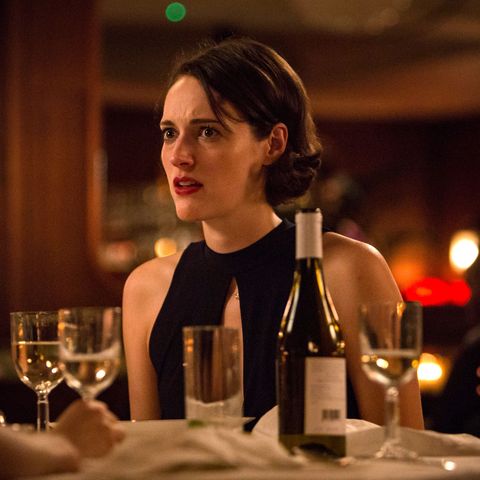







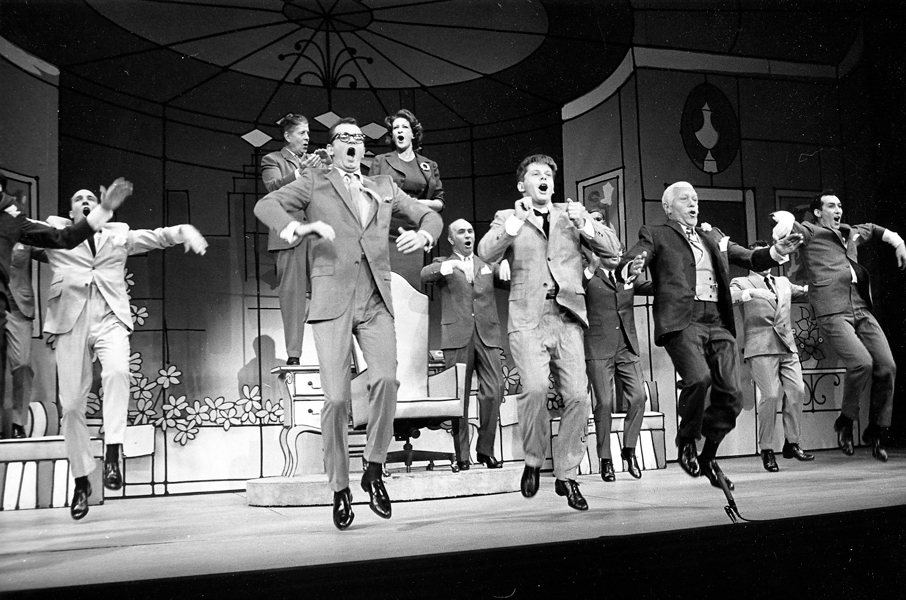



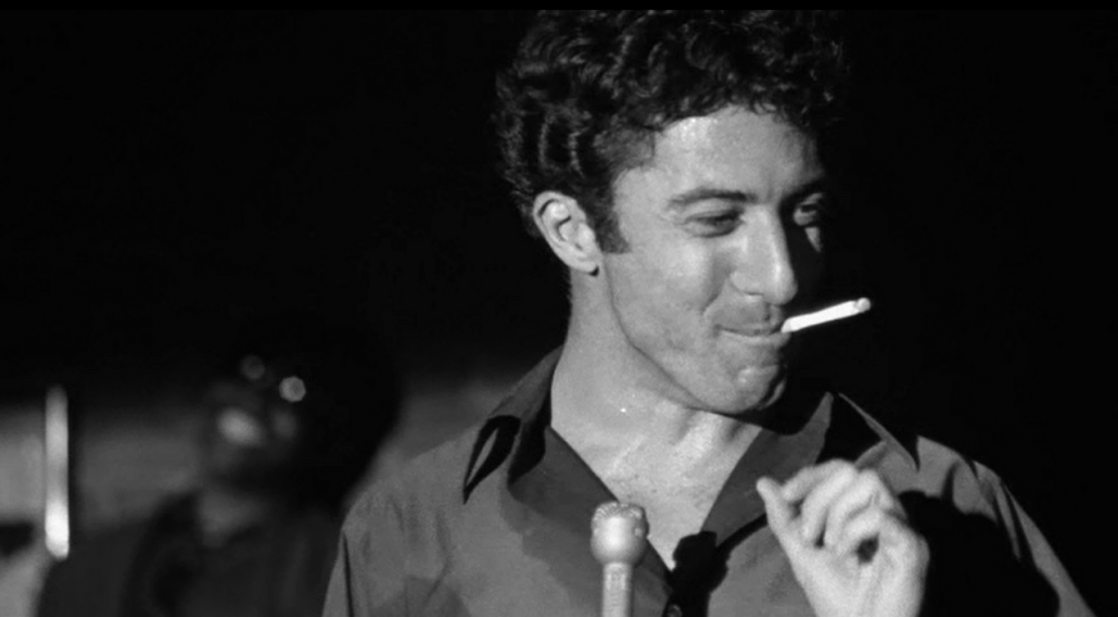


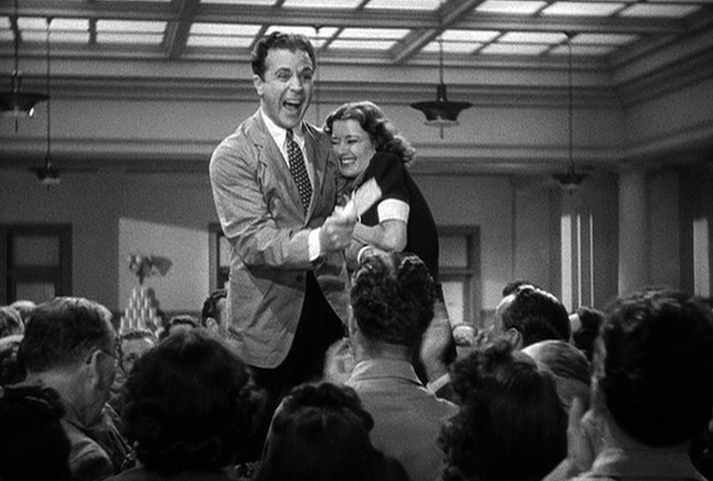




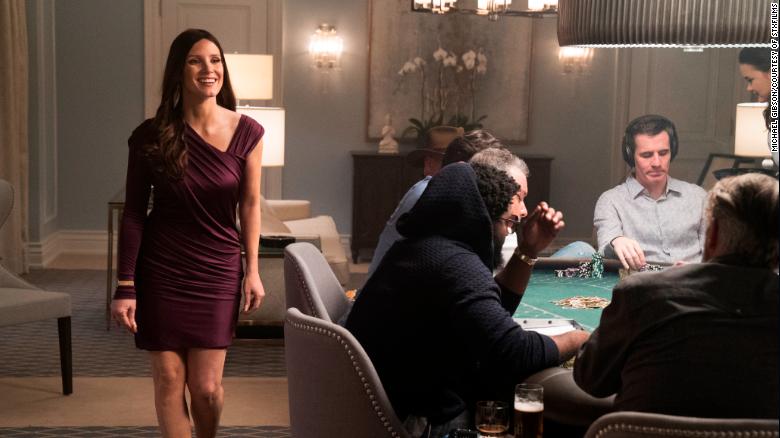
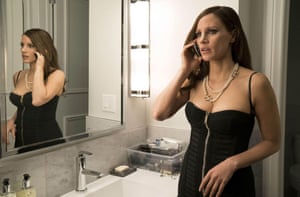



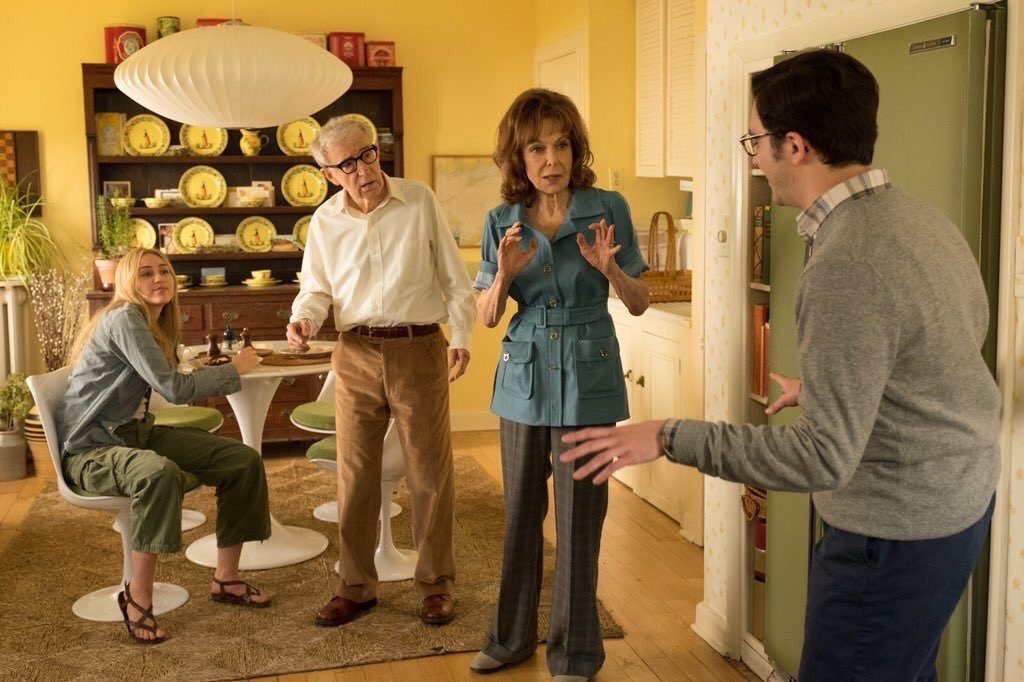

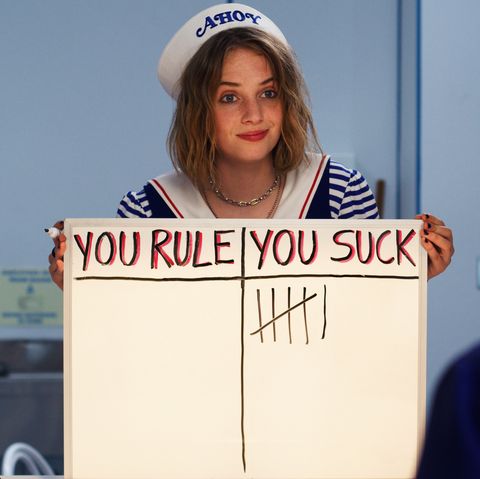

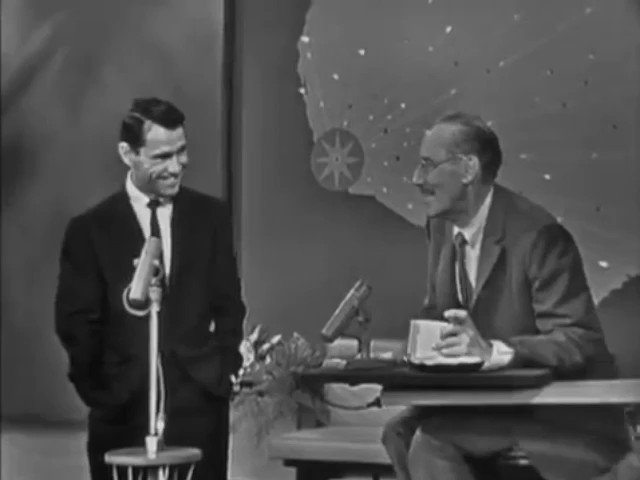
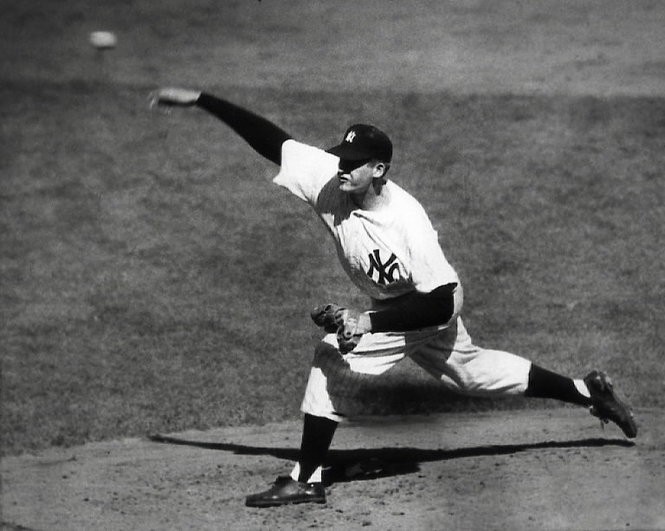
.jpg)

